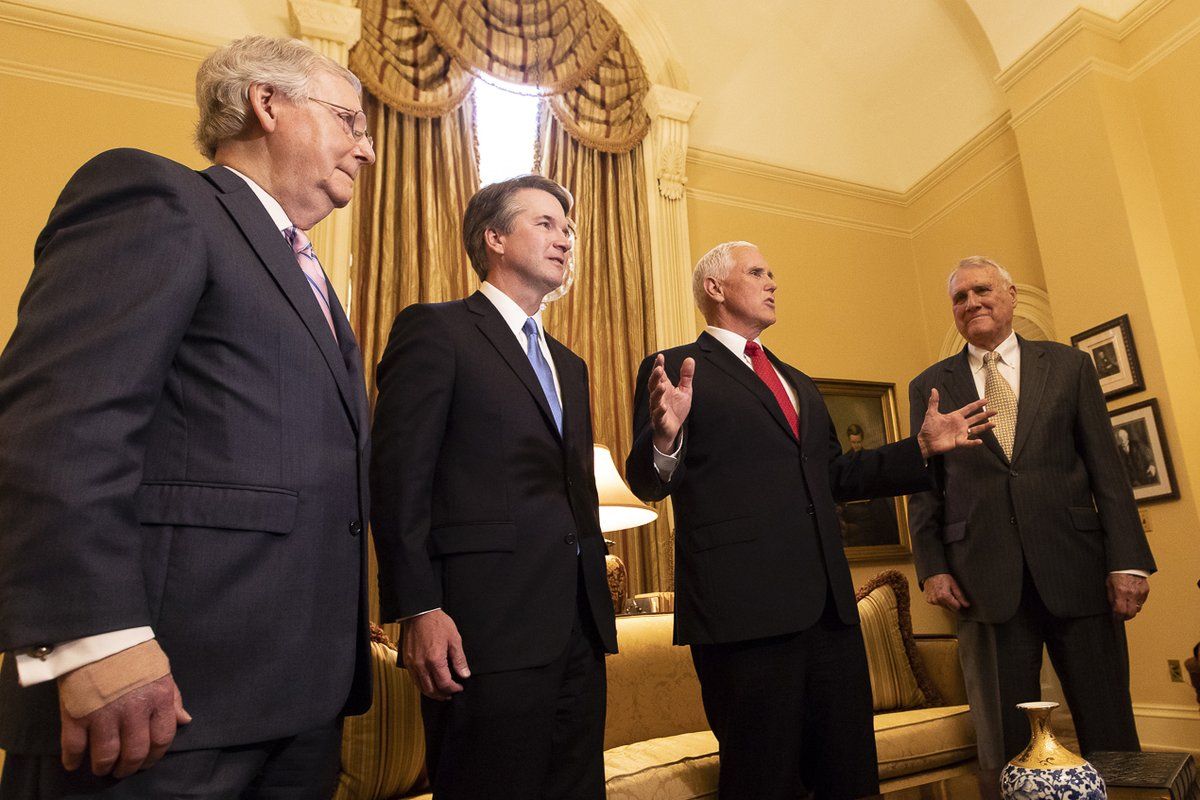Views expressed in opinion columns are the author’s own.
Definition 2b of “politician,” according to the Merriam-Webster Dictionary — “often disparaging : a person primarily interested in political office for selfish or other narrow usually short-sighted reasons.”
Anne Arundel County Councilman John Grasso just came under fire for sharing Islamophobic posts to his Facebook page. The Anne Arundel County Muslim Council called for his resignation; their president, Rudwan Abu-Rumman, met with Grasso to discuss the situation. While Abu-Rumman said he would reconsider based on Grasso’s apology, the Councilman should still ultimately resign from his position.
It was absolutely inexcusable behavior for an elected official, and we should not allow any form of hate speech and discrimination from our leaders. Grasso’s initial response to Abu-Rumman was a lazy and poorly structured text, riddled with misspelled words — including Abu-Rumman’s name, which was spelled “Rudwam.”
Regardless of personal political opinions, we need to stop excusing politicians’ moral shortcomings. The atmosphere of our politics seems to grow increasingly divisive and based more on partisan identification than integrity and leadership. It has become — as Merriam-Webster puts it — selfish.
Throughout the events leading up to Brett Kavanaugh’s confirmation to the Supreme Court, there was a palpable sense of entitlement in the judge’s narrative. His sentiment was clear — he felt he deserved the position. When questioned about his history of drinking, he eloquently responded so eloquently with “I got into Yale Law School,” as if that was indication enough of his morality and qualifications.
A seat on the Supreme Court should transcend partisan politics. As Kavanaugh himself made sure to emphasize, a judge should uphold the law with the utmost integrity — they are not there to make laws. Therefore, their character and their attitude are the most important factors in their qualifications — as it should be in all public official positions — and Kavanaugh’s display of arrogance does not cut it.
The vote was stunningly close, at 50 to confirm and 48 to reject. The divide was clear: 49 Republicans and one Democrat voted “yes,” 46 Democrats and two Independents voted “no.” It’s extremely hard to argue that this wasn’t a partisan decision. Trump’s other nominee, Neil Gorsuch, had a slightly better margin at 54-45 to confirm, but with a very similar partisan split.
The last Supreme Court judge to be confirmed with more than 70 percent of the Senate vote was John Roberts Jr., confirmed as Chief Justice in 2005 with a 78-22 split. All those who voted against him were Democrats. With two exceptions (Clarence Thomas and William Rehnquist) every Supreme Court judge confirmed between 1970 and 2000 received at least 90 percent of the Senate vote, and 5 of them received 100 percent.
In the case of Kavanaugh — as with Grasso and all of our politicians — we have to do better. Whenever we walk into a polling place, as many of us will do next month for the midterm elections, we have to not only consider the policies and issues, but also the integrity, the sincerity and the attitude of the individual who will be leading us for the upcoming term. We have to vote for who will represent us best, and that goes far beyond just our party identification.
Discrimination is unacceptable in any situation, but it’s particularly harmful coming from a person that we are meant to look up to as a leader and a moral standard. The culture of politics has become so muddled and negative that even dictionaries define “politician” as disparaging. By accepting this culture and lowering our standards for our elected officials, what does that say about our standards for ourselves?
Alyssa McKinney is a sophomore electrical engineering major. She can be reached at alyssa.cmck@gmail.com.



